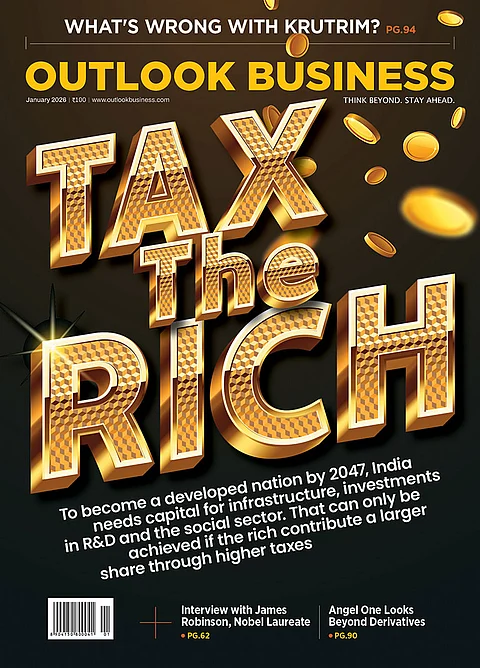Why is a fund manager important? Why is it that a majority of mutual fund investors are not aware of their fund managers? It’s always hard to evaluate performance in activities where there’s a team and one individual is playing a key role. How important a role did MS Dhoni play in India winning the World Cup in 2011? Would Godfather have become such a cult movie without Marlon Brando? Would Apple’s products have been such a success without a design genius like Jonathan Ive? Of course, these are examples where there is a recognisable face. But there are several others where there is a hidden protagonist, fund management is one of them.
Most investors invest in a particular fund or an asset management company (AMC). The brand, as the bulk of the customers recognise it, is generally the fund house. People invest in ICICI Prudential’s funds, or SBI’s funds, or Franklin Templeton’s funds and so forth. In some cases, the fund itself has a recognisable brand such as Prudence or Discovery, or Bluechip. However, outside the professional circles, fund managers in India are hardly a brand.
The role of a mutual fund company is pretty much to deliver a fund manager’s services to an investor. At the end of the day, nothing matters more to an investor than the return a fund generates on his money. The return is an outcome of how the fund manager performs and not of the brand legacy.
Interestingly, in India, and indeed in many other well-regulated financial systems, there is a formal, legal recognition of the central role of the fund manager. According to laws that regulate mutual funds, a fund is not managed by the fund company. All decisions that go into managing a mutual fund are the legal responsibility of the specified person. That’s the person who is managing your money — everything else is peripheral.
The reason for the poor state of knowledge that investors find themselves in is because AMCs do not see any great business advantage in promoting their fund managers. At the end of the day, fund managers are like employees — the better ones are pretty mobile and can leave one fund and go to another. If the AMC goes around telling customers that their funds do better than the others because they have a brilliant fund manager, then it could be a problem when the fund manager walks out of the door and joins a rival. Fund manager mobility is not a big issue, but it is a prevalent one. Except for a handful of funds, almost all have seen a change of fund managers, some of them quite frequently.
Narrow ranges and wide
In fact, there are a number of other changes in the dynamics of Indian fund management industry that have a direct bearing on investors. In the past, fund managers casually violated the investment mandate of their funds, chasing performance wherever it took them. Nudged by Sebi, they now have to stay true to the stated mandate.
A maturing market has also narrowed the boundaries within which fund managers must operate in. For example, there is not much scope for fund managers to differentiate themselves in large-cap investing. Of the 182 open-ended large-cap funds that Value Research tracks, the top half have one-year return ranging from 38% to 14%. The small-cap arena is different. There are just 22 funds, and the one-year return range from 80% to 36%. Over longer periods, the difference can be starker, with big variations from positive to negative. The narrowness of the large-cap opportunity makes huge outperformance or underperformance unlikely. In small-caps, there’s plenty of scope to differentiate the good from the bad, and the bad from the ugly.
This means that investors need to look more carefully at what the fund manager is doing and how his funds are faring. If fund managers are so crucial to performance and there is very little information about them, then where does that leave the investor who is trying to make sense of it all?
There’s no easy answer, or rather, there was no easy answer till Outlook Business and Value Research started this landmark study two years ago, solving the problem for India’s mutual fund investors. Value Research mounted an unprecedented research effort and created a fund manager performance history across funds. This kind of a capability requires daily tracking of all funds, fund managers and asset management companies, in a systematic manner. We have now developed a unique scoring system for fund managers to be rated. This year, the research spans across a period of ten years, from January 2008 to December 2017. Within this timeframe, it tracks individual fund managers across three-, five- and ten-year periods.
For investors, this leads to the more important question — how should you use this report? Should you just pile all your money into the funds run by the best fund managers? Or is there some other secret sauce of getting the best return? The answer is simple, and something that you would have heard often enough: past performance is not indicative of future results.
Fund managers who are competent do not become incompetent overnight. Circumstances change and fund managers who were among the best in one phase could end up lagging behind.
The most important thing for investors is to not lose sight of the basic principles. One must diversify, invest across different asset classes, and enter equity-based funds only through SIPs, which deliver time-based averaging. If the basics are in place, everything else will be a breeze.











